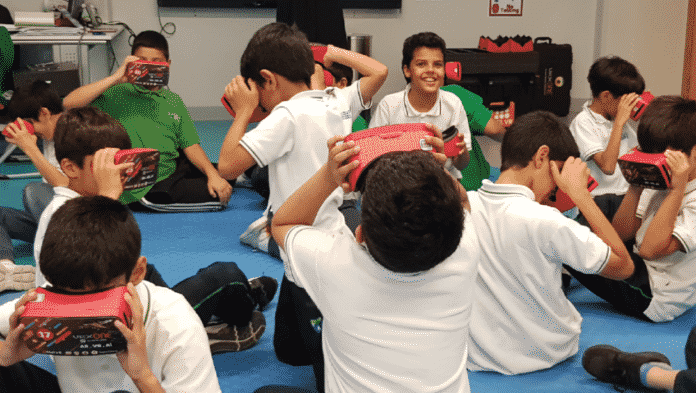The purpose of learning is to impart a clear and concise explanation of concepts. For considerable learning to happen, a student must be through with the LOs (learning objectives), able to find the real-life relevance of the lesson, and should be confident at consolidating learning during the plenary time.
If we look closely, every classroom is like a rainbow; a synergy of students possessing different mindsets and coming from discrete backgrounds. To deliver a learning lesson alike to every student might be an impediment to learning because they all progress at a different rate and perceive differently.
Student autonomy is hence, a proactive parameter of classroom progress. It is nothing but the process of making every student audacious enough to take charge of their individual learning and find logic and reason in lessons.
Student autonomy is synonymous with fearless learning.
Condemning the pedagogical practice where students are force-fed rote learning, Virtual Reality expeditions by Google are an incredible means of keeping student interests first. Every expedition is a creative way to absorb learning and easily retain it. Rather than having a series of photos that students might find monotonous, virtual reality used in education proves its credence to students by offering what they love – imagination.
Here’s a Round-Up of WHY students love VR in Classroom and the Reason it Makes Them Independent Learners:
1) Clear LOs: The challenge of most classrooms is that the students cram the lessons but do not understand whether and how they would be deployed in real-life. Many know the lesson by heart but struggle at realizing the purpose of learning. How successful is that?
With VR, students know what to expect. They can decide their own learning objectives gauging their interest and previous progress. With a clear consolidation of previous learning and a precise picture of what is to be learnt in the next lesson, students can trace their growth on tangible skills and define their learning curve. They become aware, agile, and active.
2) They can be proud of mistakes: The best part about VR is that you can redo it, you can replay it anytime. VR lessons allow students to go back and track their mistakes and take the lesson again. Attempting an expedition repeatedly till they’re confident of the concept helps them concede that mistakes are the stepping stone to learning and getting over them is easy.
Since it is a private lesson, students can be free and more confident. They don’t have to fear judgment. They don’t have to fear failure. They can practice, practice & practice until prepared.
3) They are the decision makers:
VR gives the students an opportunity to choose their lessons. Through Google Expeditions, they can learn history, biology, or geography through open-ended assignments and projects.
With VR lessons, each student decides his own pace and atop is the teacher, in charge of an observation panel where student activity can be reviewed.
4) The happiness of learning: Inspiration is a magic element. The dearth of it can put any bright student off the track and abundance of it can induce eagerness for learning in any struggling student.
The aim of teaching is not to make ‘perfect’. Its aim is progress. It is not the learning of concepts that matters but the impact that it has on our social skills, confidence, attitude, and behavior.
VR is a transformational classroom tool that adds all these qualities to a student’s persona. By inspiring pupils, VR makes them positive for learning. When there is will to learn, skill will spontaneously follow.
Virtual Reality can be a best friend to every student. Munfarid Consulting, a Bahraini organization is determined to bring this positive classroom change where students can befriend education and look forward it.
As a part of its Go-to school program, co-founder Munfarid, Dr. Sana Farid along with her team is taking bundles of joy to GCC schools. Being the official Google Expeditions partner in the Middle East, Dr. Sana is showing VRXOne to students of these schools as a part of their go-to school program, highlighting the importance of virtual reality in edtech. For this unique initiative, the team plans to show VR to 1 million students in GCC and the rest of Middle East.
Initiatives like this and others of similar stature will propel the students towards growth mindset. Let’s define education in the new light of VR.
Author: Hiba Khan

